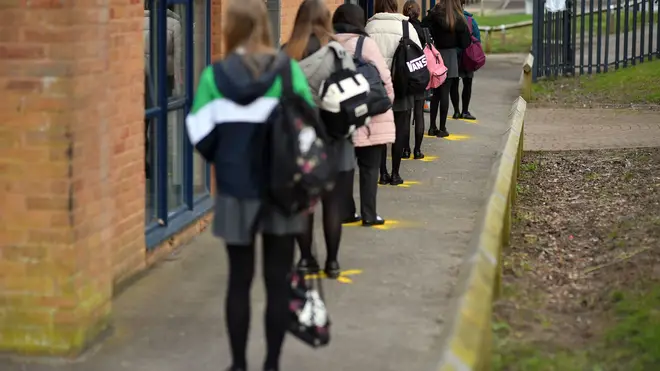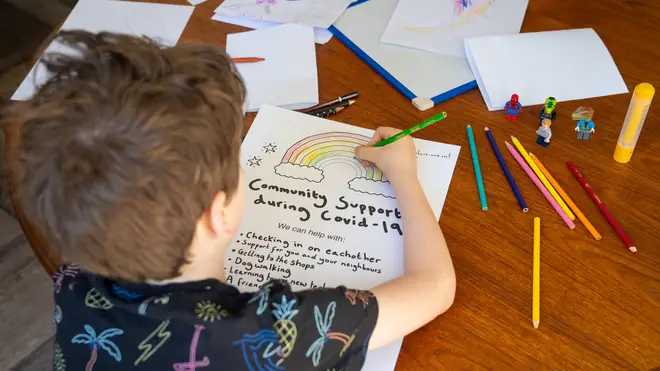
Nick Abbot 10pm - 12am
6 May 2021, 05:58

Children are struggling to socialise in person following months of lockdowns and everything being online, parents and headteachers have told LBC.
For the past year children have been forced to rely on computers and technology to interact with their friends, and it is feared the transition of coming offline and back into the real world might not be a straight forward one for many young people.
One head teacher in Essex told LBC that since coming back in March, children are finding face to face interaction difficult, as they settle back into pre-lockdown friendship groups.
Addy Willis said her six-year-old son is now reluctant to go outside, and she is now seeing first-hand how an increased use of computers and devices has had an effect during lockdown.
Read more: Care home residents can visit loved ones without isolating after 'barbaric' rules dropped
Read more: Care home coronavirus rules: what are the latest changes?
The Brentwood mum said: "Even going back to school, he constantly wants to come back home and go back on the computer… to have zoom calls with friends to play computer games."
But she added that it's also now down to parents to rebalance things out.
"More screen time than before will be the norm," she said.

"I think it's up to us as parents to make sure our children don't become too introverted because of this and only want to socialise via zoom or think that that's the normal way to socialise.”
A school in Suffolk has now brought in trauma support to help students who have developed mental health issues following lockdown.
Dave Lee Allen, head at Stowmarket High School, told LBC: "We have definitely seen an impact following the last lockdown… we're seeing a reticence to engage and a lack of confidence really, in their social interactions.
Read more: Donald Trump remains banned from Facebook after suspension upheld
"We've also picked up some stories… that during the lockdown process some of them wouldn't even leave their rooms, would be online for many hours in a day.
"We're now looking at it from a trauma informed process. I have clinical staff at the school who are feeding me some quite horrific details of individuals and while we see those as the outliers, I think there is a more fundamental problem that we are facing.

NHS app may not be ready to use as jab passport when foreign travel resumes, No10 admits
"So when we are looking at the idea of catching up, we are looking at the idea of catching up on mental health, socialisation and on the joy of the curriculum because the students just haven’t had drama groups and music groups and sports activities and that is really what we feel is needed for these young people right now to help start to build that resilience.
"The size of the challenge facing (staff) is so considerable that I think it needs a fundamental and whole school approach. So we are looking at how we do that, the training and the CPD that's required.
"The changing of the language that we use as teacher and a greater understanding of what the students have been through. So it's a fundamental shift on how education needs to be delivered.”